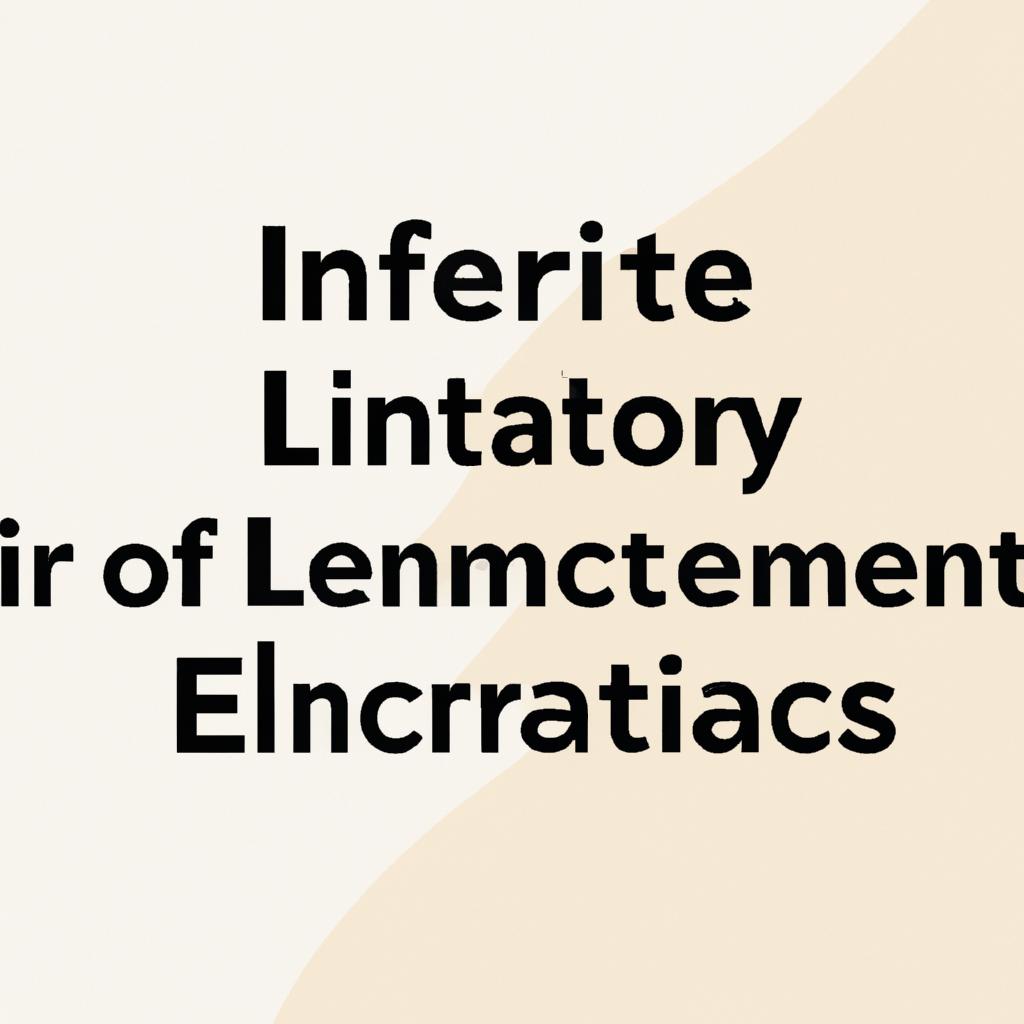As legal practitioners specializing in estate planning, probate, elder law, Wills, and trusts, the concept of LLC beneficiaries is integral to our practice at Morgan Legal Group in New York City. Understanding the intricate relationship between Limited Liability Companies and their beneficiaries is crucial in navigating the complex landscape of asset protection and succession planning. In this article, we will delve into the roles and responsibilities of LLC beneficiaries, shedding light on the legal rights and obligations that accompany such a designation.
Understanding LLC Beneficiary Designations
When it comes to LLC beneficiary designations, it is crucial to understand the implications and responsibilities involved. Designating beneficiaries in your LLC can have significant legal and financial consequences, so it is essential to make informed decisions.
Here are some key points to consider when addressing LLC beneficiary designations:
- Consult with an experienced attorney to ensure that your beneficiary designations align with your overall estate planning goals.
- Regularly review and update your LLC beneficiary designations to reflect any changes in your circumstances or wishes.
- Consider the tax implications of designating beneficiaries in your LLC, as this can impact your estate and beneficiaries.

Key Factors to Consider When Choosing an LLC Beneficiary
Consider the following key factors when choosing an LLC beneficiary:
- Relationship to the LLC:
- Financial Dependence:
- Individual vs. Entity:
- Value of the LLC:
- Future Plans:
Furthermore, it is essential to:
- Evaluate tax implications:
- Consult with legal and financial advisors:
- Review and update beneficiary designations regularly:

Importance of Properly Updating LLC Beneficiary Designations
Updating LLC beneficiary designations is a crucial aspect of estate planning that is often overlooked. Properly updating beneficiary designations ensures that assets are distributed according to your wishes in the event of your passing. Failing to update these designations can result in assets being distributed to individuals who may no longer be a part of your life or who you no longer wish to inherit your assets.
One of the main reasons why updating LLC beneficiary designations is important is to avoid potential legal battles and disputes among family members. By clearly stating who should inherit your assets through updated beneficiary designations, you can prevent confusion and disagreements among your loved ones. Additionally, regularly reviewing and updating beneficiary designations can help ensure that your assets are passed on to the intended beneficiaries and can help you avoid potential tax implications. Properly updating LLC beneficiary designations is a crucial step in effective estate planning and can provide peace of mind knowing that your assets will be distributed according to your wishes.
Recommendations for Ensuring Your LLC Beneficiary Designations Align with Your Estate Plan
When it comes to aligning your LLC beneficiary designations with your estate plan, there are several key recommendations to keep in mind. Ensuring that these two important aspects of your financial future are in sync is crucial for the smooth transfer of assets and avoiding any potential conflicts or challenges for your beneficiaries.
- Regular Review: It is important to regularly review and update your LLC beneficiary designations to ensure that they reflect your current estate plan and any changes in your personal circumstances.
- Consult with Professionals: Seek guidance from legal and financial professionals, such as estate planning attorneys and financial advisors, to ensure that your LLC beneficiary designations align with your overall estate planning goals and objectives.
Q&A
Q: What is an LLC beneficiary?
A: An LLC beneficiary refers to an individual or entity that receives the benefits and profits from a limited liability company.
Q: Can an LLC beneficiary also be a member of the LLC?
A: Yes, an LLC beneficiary can also be a member of the LLC, but this is not always the case. Beneficiaries can include individuals, organizations, or even other business entities.
Q: How does one become a beneficiary of an LLC?
A: To become a beneficiary of an LLC, one must typically be named as such in the operating agreement or other legal documents of the company. Beneficiaries may also inherit their status through estate planning or other legal means.
Q: What rights do LLC beneficiaries have?
A: The rights of an LLC beneficiary can vary depending on the specific terms outlined in the operating agreement. Generally, beneficiaries have the right to receive distributions of profits and assets from the company.
Q: Can LLC beneficiaries be changed or updated?
A: Yes, LLC beneficiaries can typically be changed or updated through an amendment to the operating agreement or other legal documentation. In some cases, beneficiaries may also need to be updated through formal legal processes.
Q: Are LLC beneficiaries liable for the debts and obligations of the company?
A: In most cases, LLC beneficiaries are not personally liable for the debts and obligations of the company. Limited liability protection is a key benefit of forming an LLC.
The Conclusion
In conclusion, understanding the role of an LLC beneficiary is crucial for ensuring the smooth operation and successful growth of a limited liability company. By knowing who has a stake in the company and what rights and responsibilities they hold, business owners can effectively manage their business relationships and protect the interests of all stakeholders involved. With clear communication and proper legal documentation, the LLC beneficiary can play a vital role in shaping the future of the company and fostering a culture of transparency and collaboration. So, whether you’re a current beneficiary or looking to become one in the future, remember that your involvement can make a significant impact on the success of the LLC.
 When starting a business, one important decision to make is choosing the right legal structure. For many entrepreneurs, a limited liability company (LLC) is the preferred option due to its flexibility, liability protection, and tax benefits. However, it is also crucial to understand the concept of an LLC beneficiary and how it can impact the company’s operations and future.
When starting a business, one important decision to make is choosing the right legal structure. For many entrepreneurs, a limited liability company (LLC) is the preferred option due to its flexibility, liability protection, and tax benefits. However, it is also crucial to understand the concept of an LLC beneficiary and how it can impact the company’s operations and future.
In this article, we will delve into the details of an LLC beneficiary, what it means, and its significance for an LLC business.
What is an LLC Beneficiary?
An LLC beneficiary is a person or entity that stands to receive benefits or profits from an LLC (limited liability company). Simply put, they are the individual or group of people who will inherit the assets, profits, and ownership of the LLC if something happens to the original owner(s).
In general, an LLC beneficiary can be anyone – a spouse, family member, friend, or business partner. They can also be a trust or an estate planning entity.
Benefits of Designating an LLC Beneficiary
1. Protects the Future of the LLC
Designating a beneficiary for an LLC ensures that the business will continue to operate smoothly in case an unexpected event happens to its original owner(s). This is particularly important for single-member LLCs, where the future of the business may be uncertain without a designated beneficiary.
2. Avoids Probate and Court Intervention
In case of the death of an LLC owner without a designated beneficiary, the distribution of assets and profits of the company will have to go through probate, a legal process that can be time-consuming and costly. By designating a beneficiary, the assets can be easily transferred without court intervention, avoiding potential disputes and delays.
3. Flexibility in Succession Planning
For multi-member LLCs, designating a beneficiary can also be a part of succession planning. If one member wants to retire or leave the business, having a designated beneficiary in place allows for a smooth transition of ownership and management.
4. Tax Benefits
Designating an LLC beneficiary can also provide tax benefits for the business. When an LLC owner passes away, the inheritance received by the beneficiary is not subject to income tax. This is because the LLC is regarded as a pass-through entity, meaning the profits and losses pass through to the owners’ personal tax returns.
Practical Tips for Designating an LLC Beneficiary
1. Be Clear in Your LLC Operating Agreement
An LLC operating agreement clearly outlines the terms and conditions of the business, including the roles, responsibilities, and rights of the owners. It is crucial to include the designation of a beneficiary in this document to avoid any confusion or disputes in the future.
2. Consult with an Attorney
Designating an LLC beneficiary may seem like a simple process, but it is always best to consult with an attorney who specializes in business law. They can guide you through the legal requirements and help ensure that the designation is in line with your state’s laws.
3. Keep Your Documents Updated
As your business and personal circumstances change, it is essential to regularly review and update the documents that name your LLC beneficiary. This includes your LLC operating agreement, will, trust, and other estate planning documents.
Real-Life Example
John and Sarah are married and co-own an LLC. They have a son, David, who is not involved in the business. In their LLC operating agreement, they have designated David as the beneficiary of their LLC. Unfortunately, John suddenly passes away, and David inherits the company’s assets and profits as his designated beneficiary. As a result, Sarah has to buy out David’s share of the business or dissolve the LLC. Alternatively, John and Sarah could have designated Sarah as the beneficiary, allowing her to continue running the business without any changes.
Conclusion
In conclusion, designating an LLC beneficiary is a crucial step for the long-term success and stability of an LLC. It can provide protection, flexibility, and tax benefits for the business and its owners. However, it is vital to carefully consider and review all the legal, financial, and personal implications before making a decision. With proper planning and guidance from a legal professional, an LLC beneficiary can help secure the future of your business and provide peace of mind.







